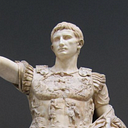Minority Languages in the Coronation, and why they matter
Today, King Charles III will be crowned in Westminster Abbey, in a ceremony that has changed shockingly little in the past thousand or more years. For most people, both in Britain and around the world, the most impressive thing about it is how archaic the whole affair is. With the possible exceptions of some ceremonies in Rome and Kyoto, it is the most elaborately traditional event in the world. But in some small but politically noteworthy respects, this coronation is different.
In the past, when holy swearing-in ceremonies like this were normal, they were typically done in Latin. It was the language of the universal church, and coronations are as much a religious ceremony as a national one. It is, after all, a bishop who places the crown on the king’s head.
Things changed with the Protestant Reformation: there was a new church, with a strange new idea that God would not be too offended if believers addressed him in their own language, rather than one no one had spoken since the Roman era. Since most of Europe’s regnant monarchies are Protestant, the old Latin version is rare today. Interestingly, Charles’ coronation will include a Greek choir, in a tribute to the birthplace of his father Prince Philip.
The last King Charles (having returned from exile after a period during which Puritan radicals beheaded his father, also Charles, and threw the royals out of the country) was also crowned in an ostentatiously English ceremony. It had the same hymns and the same smells and bells as the ceremonies of olde, but with everything translated into the vernacular. This time will be no different, though hopefully the new Charles will not spend all his time having extramarital affairs and antagonising Parliament.
The very first coronation at Westminster Abbey was that of William the Conqueror in 1066. As was customary, after the closed ceremony, William appeared on the dais for the commoners assembled outside to hail him. Things went sideways when his Norman knights, men of Viking-French heritage who did not speak English, were alarmed by the uproar and attacked the crowd. Language at coronations may seem like a petty issue, but it can be a life-or-death affair.
The accession of a 74-year-old aristocrat is hardly the stuff of “hope and change” fantasies, but Charles has always identified strongly as a changemaker. The most exalted tradition of the monarchy has little wiggle room (the fact that we are allowed to watch it at all came only as a result of a testy struggle by Charles’ father Prince Philip), but one significant innovation in this edition is the inclusion of Britain’s other languages.
For the first time in hundreds of years, a coronation in the British Isles will include the native Celtic languages of those islands. Ninety-nine percent of the ceremony is still English, but it will include invocations and hymns in Welsh and Scottish and Irish Gaelic.
Charles already broke a significant barrier in this field when he was invested as Prince of Wales in 1969, by delivering part of his address in Welsh (a fairly difficult achievement commemorated in an episode of The Crown). His was the first Cambrophone Welsh coronation since the 13th Century, and the one today will be the first Welsh-inclusive British coronation ever.
We should not credit too much to one semi-garbled speech delivered by a nervous princeling in a weird ruined castle, but Welsh nationalism has mellowed somewhat in the past few decades. Separatist sentiments in Scotland and Northern Ireland, on the other hand, are each among the UK’s most pressing political issues today.
Not many people in either country actually speak their countries’ versions of Gaelic. Barely 1% of Scots speak Scottish Gaelic. While the government of the Irish Republic has put in a mighty effort to make people learn Irish, the language is mostly unknown in still-British Northern Ireland. But nationalists in both countries view Gaelic as their ancestral tongues (even if they speak only English), with major symbolic value.
The case of Irish Gaelic is particularly interesting. On both sides of the Irish border, it is associated strongly with republicanism — many unionists identify as “British,” and speak only English (to be perfectly blunt, not that many non-unionists can really speak Irish, either). People who are interested in the monarchy and people interested in the Irish language have traditionally had little to say to one another.
But the push to sprinkle some Irish in this coronation largely came from the unionist side. The chosen hymn is in an archaic version of the language that few modern Irish speakers can understand (to be fair, the English used for the occasion is not exactly of this century, either). But its inclusion is an important symbolic step for a kingdom whose relationship with Ireland has not always been warm.
In The Leopard, an Italian classic about the tumultuous period of the country’s unification, the aristocratic protagonist observes that, “For things to stay the same, everything must change.” Britain has not quite embraced the idea of changing everything. But identifying the monarchy as an all-British, rather than an English, institution, may go some way to keeping things the same. So God save the King, Vivat Rex, and, for the first time, Dia shábháil an Rí.
